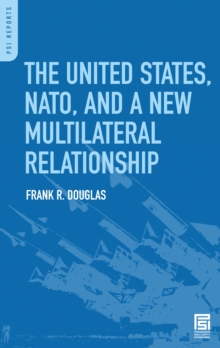
The Laws of Genocide : Prescriptions for a Just World PDF
by Simon Thomas W. Simon
Part of the PSI Reports series
Description
The tools of reason offer the best hope for the international community to confront the increasing incidents of hate throughout the world. A historically informed, normative examination of the elements of the crime of genocide provides an excellent case study of how the law, reason's handmaiden, enhances understanding and improves practical ways of dealing with global injustices.
How should we confront hate? As political activists, we could resort to fighting hate with hate. As concerned citizens, we could consciously ignore or actively protest hate. As committed educators, we could put the implements and survivors of hate on display. As committed scholars, we could resuscitate the idea of evil. As humanitarian jurists, we could put individual hate-mongers on trial. Part I of this book makes a case for making the maximum use of reason to deal with hate. This means that we should actively debate those who promote hate. Further, as a close look at the history of applying law to incidents of hate and violence illustrates, the courtroom proves to be an excellent place to demonstrate the virtues of applying the tools of reason, not to global evils, but to the grave injustices of the world.
In Part II, Simon demonstrates the power of legal analysis in enhancing our understanding of genocide, probably the worst injustice imaginable. A close examination of each purported element of the crime of genocide redirects misguided turns taken by international jurists. Contrary to a more realistic perspective adopted at the Nuremberg trials, jurists have mistakenly modeled international criminal law on national criminal law, which focuses on individual responsibility. However, the cases of grave injustices throughout the 20th century amply demonstrate the primary collective responsibility underlying incidences of genocide. The failure to prosecute criminal organizations for genocide has and will continue to have disastrous results. While the Nuremberg tribunal at least disbanded the responsible Nazi organizations, current war crimes tribunals have allowed organizations responsible for the Rwandan genocide to continue to wreak havoc throughout Central Africa. If the international community cannot forge a common understanding of genocide, then it has little hope of establishing an international legal order or a global ethics.
Information
-
Download - Immediately Available
- Format:PDF
- Pages:232 pages
- Publisher:Bloomsbury Publishing (USA)
- Publication Date:30/06/2007
- Category:
- ISBN:9780313090288
Information
-
Download - Immediately Available
- Format:PDF
- Pages:232 pages
- Publisher:Bloomsbury Publishing (USA)
- Publication Date:30/06/2007
- Category:
- ISBN:9780313090288










